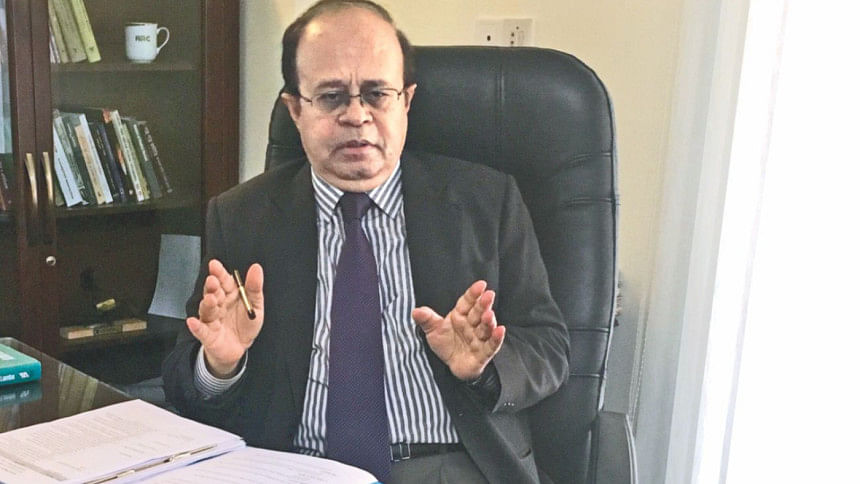Financial Reporting Council not fully ready

The Financial Reporting Council (FRC), formed in 2016, is yet to be fully functional as the regulations that will govern the accountings, earning reports and disclosure of companies have not been formulated yet.
“We cannot do anything without the regulations,” CQK Mustaq Ahmed, chairman of the council, said in an interview with The Daily Star at his office in Dhaka on Sunday.
The government enacted the Financial Reporting Act in 2015 to ensure transparency in the accountings of listed and non-listed companies. Although established in 2016, it started to work formally in July 2017 following the appointment of the chairman.
Stakeholders in the stock markets, especially investors, had long been demanding the formation of such a body after they identified major deviations in many companies' financial disclosures such as quarterly unaudited earnings.
“We are working on the regulations and it may take another six months to complete the job,” said Ahmed.
The FRC will have to take views from the stakeholders before formulating the regulations. Later, it will have to take vetting before getting the approval from the government.
“We are very careful and we want to make the regulations flawless so that stakeholders get expected outcome from the FRC,” said Ahmed, also a former senior secretary to the home ministry.
“The council wants to bring confidence and trust on the accounts of listed and non-listed companies and NGOs as well.”
The first chairman of the council also talked about the FRC's work philosophy.
“The FRC's main goal is not to punish accountants and auditors. Rather, it aims to put in place a self-regulation culture so that investors, donors, and the government can get the true financial figures of companies.”
“Punishing professionals is not the only way out.”
The FRC will also act to protect accountants and auditors.
Accountants and auditors get remuneration from companies, sometime creating a mental barrier on not to go against their employers, Ahmed said, adding that company managements in many cases compel them to make inflated financial reports.
“So, we will work on their remuneration and appointment.”
He said FRC approval may be made mandatory for companies to appoint auditors, so that the companies can't punish them for stating flaws in reports.
“Auditors who are paid for digging out flaws should be treated like doctors. We will create an environment so that professionals can work independently.”
He said foreign investment in the stockmarket is very low. There are reasons behind this. Of the factors, a lack of confidence and trust in the listed companies' financial statements is the most important.
“When the FRC begins functioning in full swing, trust will be restored among foreign investors, benefiting the capital market considerably.”
The FRC itself will also have to win people's confidence and become trustworthy as a regulator, according to Ahmed.
“It's a big challenge for the FRC. If it fails to work carefully, it will not be able to bring any result.”
Ahmed also believes that the commission will be able to work without any political influence.
He said directors of many listed companies are involved in manipulation of their shares by showing inflated or lower earnings and it is easy to do as quarterly reports remain unaudited.
“The FRC will work on it too, checking quarterly reports if we find significant deviation.”
Ahmed said the commission would ensure good corporate governance in companies as well and would be a one-stop service door to find out problems related to companies' financial reports.
The former bureaucrat is also aware that some companies maintain multiple accounts for their own benefit: they submit the worst ones to the National Board of Revenue (NBR) and the rosy ones to the Bangladesh Bank (BB).
The FRC has a wing that works to coordinate among all regulatory bodies including the BB, the NBR, and the Bangladesh Securities and Exchange Commission.
“We will extensively work on the issue by crosschecking the reports submitted to different regulators.”
He said once the FRC starts functioning at top gear, none will be able to evade tax.
“This will benefit the government and investors will get a better picture of companies. As a result, foreign investors' confidence will be boosted.”
The FRC is working to set up a common form of reporting for every similar company so that it becomes easily understandable to people.
The commission is reviewing several companies' financial statements, holding hearing with them and sending findings to their primary regulator.

 For all latest news, follow The Daily Star's Google News channel.
For all latest news, follow The Daily Star's Google News channel. 



Comments